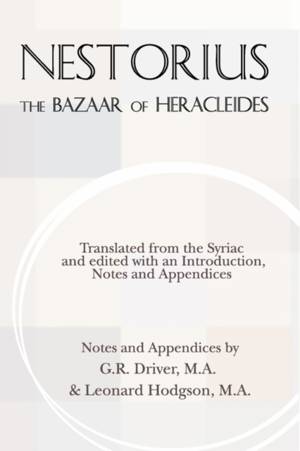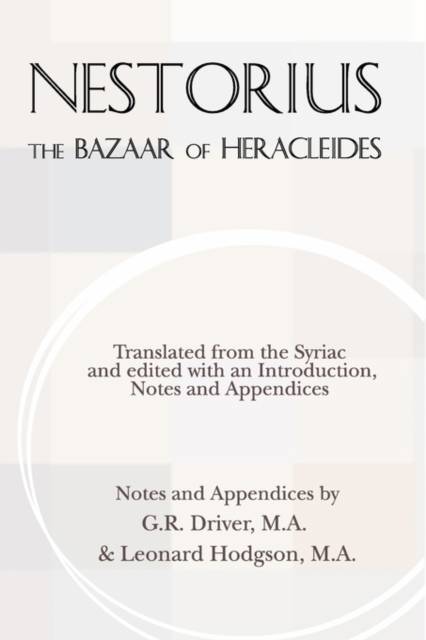
- Afhalen na 1 uur in een winkel met voorraad
- Gratis thuislevering in België vanaf € 30
- Ruim aanbod met 7 miljoen producten
- Afhalen na 1 uur in een winkel met voorraad
- Gratis thuislevering in België vanaf € 30
- Ruim aanbod met 7 miljoen producten
Zoeken
Omschrijving
Written while he was in exile, 'The Bazaar of Heracleides' was Nestorius' attempt to give an account of his thought in the face of condemnation. The book is written in dialogue form in order to advance Nestorius' basic Christological ideas. The Incarnation is the union of God and human, the nature (ousia) of each being complete and remaining distinct from the other. Nestorius asserts that the two natures are united in one prosopon, so there is one Son, the Lord Jesus Christ. The prosopon of the man Jesus and that of God are the same and they are both present in the one prosopon of Jesus Christ. Jesus is born of the Virgin Mary, but God the Word is not born, and does not grow, suffer, or die. Hence, Mary is not Theotokos, God-bearer. This assertion, according to Nestorius, does not mean that there are two Sons, or two Christs.
Specificaties
Betrokkenen
- Auteur(s):
- Vertaler(s):
- Uitgeverij:
Inhoud
- Aantal bladzijden:
- 462
- Taal:
- Engels
Eigenschappen
- Productcode (EAN):
- 9781579109349
- Verschijningsdatum:
- 15/04/2002
- Uitvoering:
- Paperback
- Formaat:
- Trade paperback (VS)
- Afmetingen:
- 141 mm x 223 mm
- Gewicht:
- 571 g

Alleen bij Standaard Boekhandel
+ 124 punten op je klantenkaart van Standaard Boekhandel
Beoordelingen
We publiceren alleen reviews die voldoen aan de voorwaarden voor reviews. Bekijk onze voorwaarden voor reviews.











